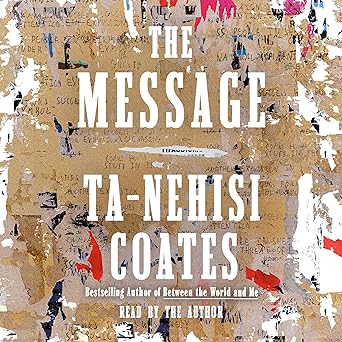
We recently had the chance to dive into a powerful book that explores the impact of our stories on our realities. The author, a renowned writer, sets out on a journey to three sites of conflict - Africa, Columbia, and Palestine - with the goal of understanding how the stories we tell shape our world. As he travels to each location, he grapples with deeper questions about how our narratives expose and distort our realities.
The author begins his journey in Dakar, a modern city in Senegal, where he finds himself torn between his physical presence and the mythic kingdom in his mind. He then travels to Columbia, South Carolina, where he reports on the backlash to the nation's recent reckoning with history. The author explores the larger American mythology that is deeply rooted in the city, where statues of segregationists loom over public squares. He also reports on the banning of his own book, which serves as a catalyst for his exploration of how our stories shape our realities. In the longest section of the book, the author travels to Palestine, where he witnesses the devastating consequences of nationalist narratives and the clash between the stories we tell and the reality of life on the ground. The author argues that it is essential to untangle ourselves from the destructive myths that shape our world and embrace the liberating power of even the most difficult truths.
The author's writing is a testament to his purposeful approach to storytelling. He challenges readers, including students, parents, educators, and journalists, to challenge conventional narratives that can be used to justify ethnic cleansing or camouflage racist policing. The book is a timely and powerful exploration of how our stories shape our realities and the importance of embracing difficult truths. The author's work is a powerful call to action, encouraging readers to examine their own assumptions and beliefs about the world and to seek out the truth, even when it is difficult to confront.
I recently had the chance to dive into a powerful book that explores the impact of our stories on our realities. The author, a renowned writer, sets out on a journey to three sites of conflict - Africa, Columbia, and Palestine - with the goal of understanding how the stories we tell shape our world. I was drawn to this book because I've always been fascinated by how our personal narratives can be shaped by our experiences and environments. The author's decision to travel to these different locations made me realize that our stories are not just personal, but also deeply connected to the world around us.
As I read through the book, I couldn't help but think of my own family's story and how it has shaped me. My grandmother, who immigrated to a new country, was forced to leave behind her own culture and story. She had to adapt and create a new narrative for herself and her family. I realized that the author was echoing a similar experience when he grappled with the consequences of the stories we tell. How do our stories shape our realities, and how do we create a new narrative that is more inclusive and just? The author's writing was both thought-provoking and heartbreaking, as he recounted the devastating consequences of nationalist narratives and the clash between the stories we tell and the reality of life on the ground. I found myself thinking about the power of storytelling and the responsibility that comes with it.
The author's writing is a testament to his purposeful approach to storytelling. He challenges readers to think critically about the stories they tell themselves and others. He encourages us to examine our own assumptions and beliefs about the world and to seek out the truth, even when it is difficult to confront. The book is a timely and powerful exploration of how our stories shape our realities and the importance of embracing difficult truths. As someone who has always been passionate about storytelling, this book resonated deeply with me. I left the book feeling inspired to use my own story to create a more inclusive and just world.
Rating: 4.5 / 5.0
I recently had the chance to dive into a powerful book that explores the impact of our stories on our realities. The author, a renowned writer, sets out on a journey to three sites of conflict - Africa, Columbia, and Palestine - with the goal of understanding how the stories we tell shape our world. As he travels to each location, he grapples with deeper questions about how our narratives expose and distort our realities. The author's writing is a testament to his purposeful approach to storytelling, challenging readers to think critically about the stories they tell themselves and others. The book is a timely and powerful exploration of how our stories shape our realities and the importance of embracing difficult truths, encouraging readers to examine their own assumptions and beliefs about the world and to seek out the truth, even when it is difficult to confront. I would give this book 4.5 out of 5 stars, rating it for its thought-provoking and heartfelt writing that left me feeling inspired to use my own story to create a more inclusive and just world.